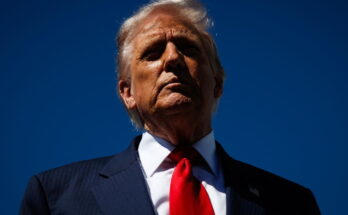The Union and the SPD have been arguing about new military service for weeks. Now the coalition wants to take a “very big step” further. Decision day could be Wednesday.
A hearing on military service in the German Bundestag lasted two hours on Monday morning. It is a key date in a debate over military service that has been going on for weeks. Invited experts deliver their assessments, parliamentarians listen with interest or ask questions.
Then suddenly the peace of mind was disturbed. Falko Droßmann, defense policy spokesman for the SPD parliamentary group, still appears to have issues to resolve. He spoke to military history professor at the University of Potsdam, Sönke Neitzel, one of five invited experts who called the SPD a “security risk” for the country before the hearing. Droßmann said: Neitzel was a historian, and he, Droßmann, had learned that historians deal with the past. However, Neitzel also serves as an expert on the present and the future.
Neitzel, who warned again on Monday of possible Russian attacks on NATO territory in the next few years, let the provocations die down. “Don’t hold it against me, Mr Droßmann, unfortunately the SPD often wanders around in security policy.” Neitzel mentioned, for example, the debate about armed drones for the Bundeswehr, which the SPD has blocked for years. “You have caused serious damage to this country,” the professor told the SPD member.
A brief skirmish in the Bundestag Defense Committee showed that the tone of the debate on military service had become more violent. A few weeks ago, Defense Minister Boris Pistorius (SPD) lost patience and abandoned a compromise between government factions shortly before it was announced. The pressure on the parties involved to find a solution is enormous: the threat from Russia’s hybrid armed forces is increasing. At the same time, the window of opportunity for a military service law, which would help deter Russia and come into force on January 1, 2026, is gradually closing. Can they manage it?
For months, the Union and the SPD have grappled with the question of how the new military service structure should be structured. Defense Minister Pistorius’ original version, approved by the cabinet at the end of August, was based largely on voluntary measures.



